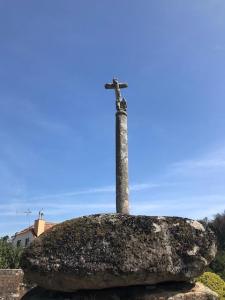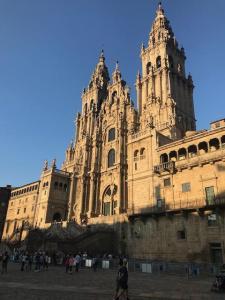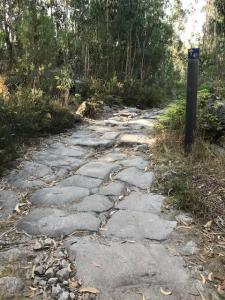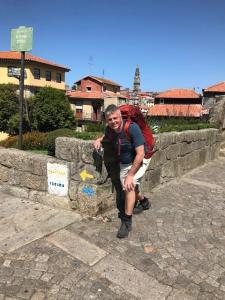The pilgrimage known as the Camino de Santiago for over a thousand years has drawn people from across the globe eager to take part in its challenge, beauty and redemptive qualities.
Tens of thousands of ‘pellegrinos’ or pilgrims every year walk its ancient routes across Southern Europe to Santiago de Compestella in the Galician region of Spain where the bones of Saint James are said to have been buried. And the numbers continue to grow.
Its most famous and challenging route stretches close to 800 kilometres across Northern Spain across the Pyrenees from the French border.
Its immensity, its invitation to contemplate life’s journey, its beauty and its explicit spiritual and religious overtones have tipped the Camino or ‘The Way of Saint James’ into the bucket list for serious pilgrims and adventure tourists alike.
What used to be a trek for the religious has become a drawcard for backpackers, trekkers, modern travellers, and religious folk alike.
I should know; I walked close to 300 kilometres on the Portuguese route a few years ago in what was one of the best experiences of my life. A man of faith, I didn’t do it for religious reasons but found myself profoundly changed for the experience.
So it was with some surprise that I recently read Nick Hossack’s Spectator Australia piece warning people off the Camino. Now I know and respect Nick but respectfully disagree with him on this, one of life’s most traditional, awe-inspiring walks.
‘What concerned me most in the research summary (of the Camino) were words about pilgrims achieving more “empathy” and “acceptance” of others,’ Hossack concluded, after conducting a desktop summary of why people choose to walk on ‘The Way’.
‘These two ideas, acceptance and empathy, may indeed be the two words that are most responsible for the undermining of Western countries.’
His AI-driven conclusion was that the Camino and these dubious associated ‘benefits’ drive an expansion of the welfare industry and its unsustainable, badly rorted programs dragging society into traps of servitude.
With due deference to Nick and his Chat GPT research assistant, I respectfully wish to make the case for the Camino and how this most traditional of walks underscores conservative values and buttresses the best in those willing to walk in the path of 1,200 years of fellow pilgrims.
To do that, one must understand a little of the mysterious history of the Camino.
According to the Camino’s own official history, the body of Saint James the Apostle is buried beneath Santiago’s vast and beautiful cathedral, although like many holy relics there is some conjecture over the actual whereabouts.
‘Saint James had died some 800 years earlier and according to legend, was transported to Galicia by two disciples in a boat led by angels. Somehow his body was then buried in a field not far from there, the very place where it would be discovered a few centuries later,’ this version claims.
‘Informed about this important discovery, King Alfonso II had a small chapel built in this holy place. He would later commission a larger temple in order to attract pilgrims from all over the world. This would, in effect, compete with other important religious centres of pilgrimage, such as Jerusalem and Rome.
‘The relics of Saint James would transform Santiago de Compostela into one of the world’s most important pilgrimage destinations.’
This was important for political reasons.
‘A large influx of faithful Christians travelling across Northern Iberia, settling and creating strong cultural links with the rest of Europe, would be a very powerful tool in keeping the Moors away,’ the official records continues.
Setting aside the historical benefits of assisting of holding back the Moors and assisting with the maintenance of Judeo-Christian values in Spain and Portugal, the Camino holds far greater power for the pilgrims who choose to undertake its rigours.
Reflecting on the life and values of St James – one of the 12 martyred disciples – and the vast benefits of the Judeo-Christian values that underpin many of our laws and institutions must instil the thoughtful Pellegrino with gratitude for the influence of these values on society’s character and institutions.
In a day where many in the West have cut completely loose from what has made the West great to be adrift on the seas of postmodernism and other competing and destructive or inferior ideologies, the Camino offers a chance for pilgrims to gather, to learn, to share and to revel in what St James stood for.
On his own walk through life, famous atheist Richard Dawkins seems to have reached similar conclusions by declaring himself a ‘cultural Christian’ purely because of a comparative study of the world’s great religions and the benefits that have ensued to the West.
Dawkins has been dragged – not to the divinity of Christ – but to Christianity’s spawning of the tenets of political liberalism: liberty, equality, tolerance, justice, creativity, and the pursuit of happiness.
The Camino and its breathtaking pathways dotted with Christian iconography are to the pilgrim a poignant and timely reminder of thousands of years of these, our best and greatest, cultural achievements traditions and values.
Lastly, the physical and emotional challenge of any great walk or pilgrimage forces the pilgrims – whether they be young backpacker or religious convert – to reflect on their larger walk through life.
On the hundreds of kilometres of Camino’s narrow rocky paths, there are challenges, painful, setbacks, and wrong turns. There are moments of great beauty and discovery. The honest pilgrim is honed, refined, and tested intellectually, physically, emotionally, and spiritually.
What better metaphor for better understanding and dealing with the setbacks and wrong turns of their lives more generally? But also of the satisfaction derived from meeting challenges, making new discoveries – often after a wrong turn – and basking in the glow of physical achievement (not to mention Spain’s fine food and wine).
I can’t think of a better way for winnowing out the insignificant falsehoods of modern teachings and encouraging the best and the most important aspects of ourselves: endurance, patience, steadfastness, and contemplativeness, to name but a few.
From this perspective, engaging with the Camino and its life lessons is to be encouraged, not discouraged. What has become a hiking rite of passage is an important gateway to the discovery of all that has underpinned what we in the West have nurtured.
I say more people ought to sacrifice a few weeks of their lives to walk the Way of St James.
Who knows what benefits may ensue? We might even encourage in our fractured modern world a bit more empathy and acceptance.





























